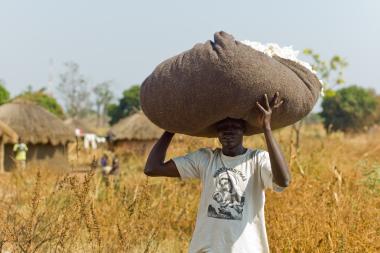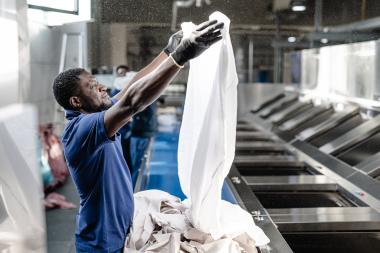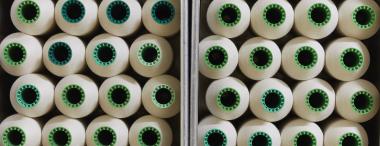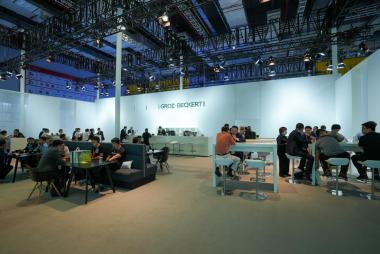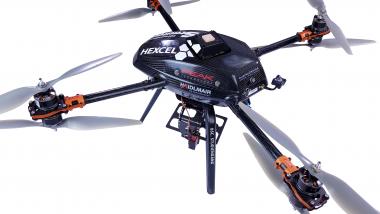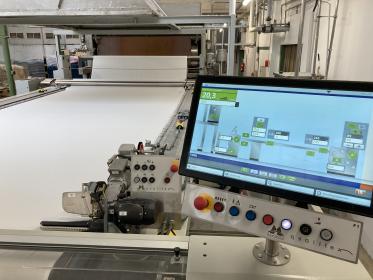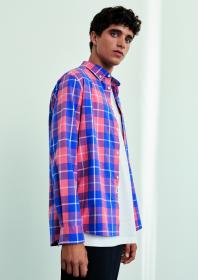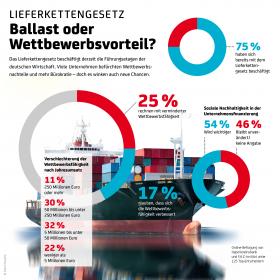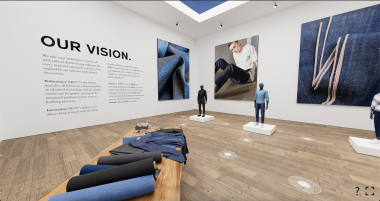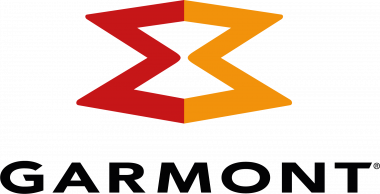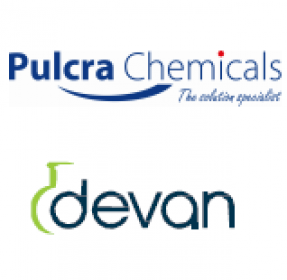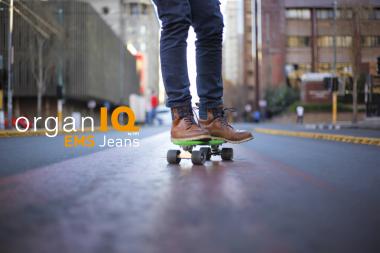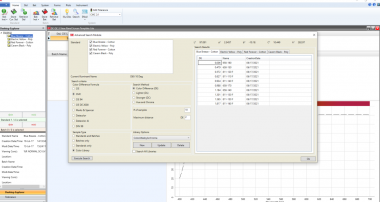Cotonea: Baumwolltextilien haben eine positive CO2-Bilanz
Das jüngst verabschiedete Lieferkettengesetz steht in der Kritik, es ignoriere die großen Umweltkrisen wie den Klimawandel (BUND, 6/2021). Und das, obwohl unter anderem die Modeindustrie laut Studien auf dramatische Weise zum Wandel des Klimas beiträgt (McKinsey/Global Fashion Agenda, 8/2020). Passiere hier keine Besserung, steigen die die CO2-Emissionen der Branche vermutlich derart, dass sie bis 2030 das Doppelte der im Pariser Abkommen festgelegten Menge verursachen haben wird. Jetzt legt eine neue Erkenntnis nahe: Baumwolle könnte der Weg zu einer klimafreundlichen Textilindustrie sein.
Baumwolle bindet CO2 effektiver als andere Nutzpflanzen
„Dass der ökologische Anbau weniger CO2 verursacht als der konventionelle, ist weithin bekannt. Das liegt unter anderem am Einsatz des Kunstdüngers, der Treibhausgase emittiert und beim Bioanbau wegfällt“, weiß Roland Stelzer, der als Geschäftsführer der Biobaumwoll-Marke Cotonea seit über 30 Jahren die Wissenschaft verfolgt.
„Von der Baumwollpflanze, die sich klimapositiv auswirkt und effektiver CO2 absorbiert als andere Pflanzen, wusste selbst ich bis vor kurzem nicht. Das hat erst kürzlich eine wissenschaftliche Arbeit von Kai Hughes (3/2021), Leiter des International Cotton Advisory Committee (ICAC), herausgestellt.“
Die Ursache für dieses Phänomen liegt demnach darin, dass die Baumwollpflanze zu fast 100 Prozent aus Zellulose besteht. Der Bildungsprozess von Zellulose ist maßgeblich für die Aufnahme von CO2. Laut der Untersuchung des ICAC verursacht die Produktion von Nylon im Vergleich zu sieben anderen Fasertypen am meisten Treibhausgase. Die Herstellung von Baumwolle verantwortet am zweitwenigsten. Nur die Flachsfaser soll noch klimaschonender sein.
Der Baumwollanbau für Cotonea hat im Jahr 2020 1,26 Millionen kg CO2 gebunden
Es mag absurd scheinen: Die Baumwolle, die für eine Fasermenge von 1.000g benötigt wird, absorbiert dafür über 2.500g CO2. Für Cotonea bedeutet das, dass die Marke bei der Baumwollherstellung im vergangenen Jahr 1.260 Tonnen CO2 gebunden hat. Roland Stelzer gibt zu bedenken, dass der Klimawandel zu den Umweltproblemen gehört, die die klimapositiven Baumwollpflanzen gefährden.
Mediale Aufklärung bezüglich der Umweltfreundlichkeit von Baumwolle ist wichtig
Stelzer sieht eine mediale Aufklärung über die Umweltfreundlichkeit der Baumwolle als essentiell, um für Modedesigner die Verwendung und für Produzenten den Anbau von Baumwolle attraktiver zu machen.
„Den desaströsen ökologischen Fußabdruck der Modeindustrie verursacht größtenteils Fast Fashion aus synthetischen Materialien und Mischgeweben und der damit verbundene Wegwerfkonsum“, so Stelzer. Für die derzeitigen Mengen würden die vorhandenen Anbauflächen nicht ausreichen, würden sie aus Baumwolle hergestellt. Die Lösung seien haltbare Textilien aus Baumwolle: Sie vereinten positiven Umwelteinfluss, weniger Produktion und besseren Nutzen durch höhere Qualität und Haltbarkeit.
Zu der Frage, ob er mit einer Erweiterung des Lieferkettengesetzes auf den ökologischen Bereich rechnet, antwortet Stelzer: „Das ist mir nicht bekannt. Aber sollte so etwas passieren, schockt uns das überhaupt nicht. Wir schonen bei unseren Prozessen nicht nur das Klima, sondern nachweislich auch die der Artenvielfalt, die Bodenfruchtbarkeit, das Grundwasser, verzichten auf Pestizide sowie gentechnisch veränderte Organismen – und erfüllen viele weitere grundlegende Aspekte des Umweltschutzes und fairen Handels entlang der kompletten Lieferkette.“
Cotonea Baumwolle Baumwollproduktion Lieferkettengesetz Textile Lieferkette Nachhaltigkeit
Gebr. Elmer & Zweifel GmbH & Co. KG / UBERMUT Studio für Kommunikation GbR


